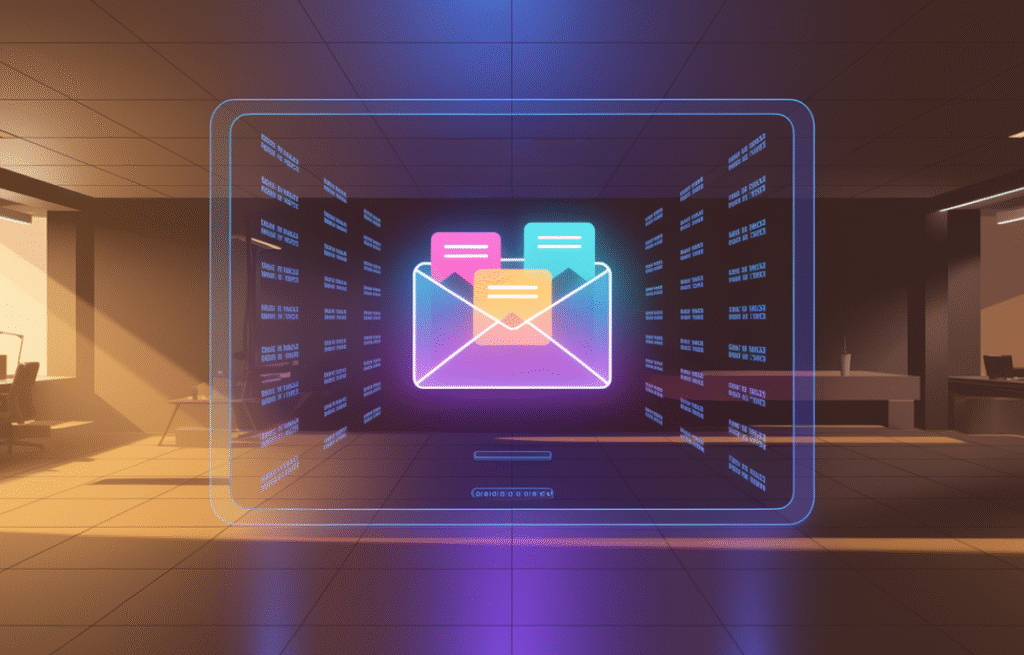Why Business Email Matters in Modern Work
The modern workplace thrives on communication. Meetings, instant messages, and video calls are all part of the professional ecosystem, yet one channel continues to hold unrivaled importance: business email. Understanding the Modern work email importance reveals not just why it persists, but why it remains central to effective collaboration, client relations, and organizational clarity.

A Channel That Stands the Test of Time
Despite the rise of chat platforms and project management tools, email continues to dominate professional exchanges. The reason lies in its balance of formality, flexibility, and reach. When considering Why emails matter today, it becomes clear that they serve purposes no other tool can completely replicate. Emails can document agreements, provide structured communication, and act as official records for business transactions.
In many cases, emails are the thread that ties conversations together, providing continuity that transient chat messages often lack.
The Role of Email in Everyday Business
The phrase Email’s role in work extends beyond simple message delivery. It represents the backbone of professional interaction. From negotiations with international partners to quick updates within teams, email bridges gaps of geography, time zones, and organizational hierarchy.
Emails create a formalized space for communication. Unlike the often casual tone of messaging apps, emails reinforce professionalism. They act as both correspondence and evidence—critical in industries where documentation and accountability are paramount.
Why Emails Matter Today
Emails remain the most widely accepted communication tool in professional environments worldwide. The question of Why emails matter today is answered by their adaptability. Emails work seamlessly across industries, cultures, and technologies. They integrate with calendars, workflows, and CRM systems, making them indispensable to structured business processes.
Moreover, they support clarity. A well-written email outlines context, expectations, and next steps in a way that fosters alignment and avoids confusion. In contrast, hurried instant messages may leave room for misinterpretation.
Modern Workplace Emails and Professional Identity
The concept of Modern workplace emails goes beyond efficiency—it ties directly to reputation. Every message sent is an extension of one’s professional identity. Whether responding to a client, addressing a superior, or collaborating with peers, the language and tone in emails reflect competence and credibility.
Modern workplace emails also provide an opportunity to strengthen brand consistency. Unified email signatures, templates, and styles signal organization-wide professionalism. This subtle yet powerful branding tool reinforces trust with external partners and clients.
The Formal Yet Flexible Medium
Unlike phone calls or chats, emails create a tangible record of professional exchanges. This duality—formal yet flexible—is what cements the Modern work email importance in today’s business world. An email can be as brief as a one-line update or as detailed as a multi-page proposal. This versatility allows it to adapt to nearly every business context.
Enhancing Productivity Through Email
Emails help professionals prioritize and organize tasks. Many rely on their inboxes as a to-do list, with unread messages acting as reminders of pending work. When combined with filters, folders, and automation, Modern workplace emails evolve into productivity systems that streamline day-to-day operations.
Unlike real-time messaging that often interrupts workflow, emails can be managed at scheduled times. This balance reduces distractions while ensuring communication remains timely.
Global Business Connectivity
One of the greatest strengths of Email’s role in work is its universality. Emails cross borders without barriers, making them the primary medium for global commerce. They allow businesses to maintain consistent communication with international partners regardless of time zones.
An email sent at the end of one workday can be read and responded to during another’s morning, keeping business cycles moving around the clock. This asynchronous nature gives emails an edge in efficiency and global reach.
Why Businesses Can’t Do Without Email
Eliminating email from modern operations is nearly impossible. Without it, contracts lack formal delivery, proposals lose structure, and critical information becomes scattered. The persistent question of Why emails matter today comes back to necessity: email remains the glue that binds professional interactions in a coherent, accountable way.
Other tools may complement communication, but none have replaced the stability and trust email provides.
The Future of Business Email
Looking ahead, Modern workplace emails will continue to evolve. With artificial intelligence, smart filters, and advanced automation, inboxes are becoming more intuitive. These innovations enhance—not replace—the enduring significance of email.
As workplaces embrace hybrid and remote models, the reliance on strong written communication only intensifies. Business emails will remain at the forefront, ensuring professionalism is not lost in a digital-first world.





